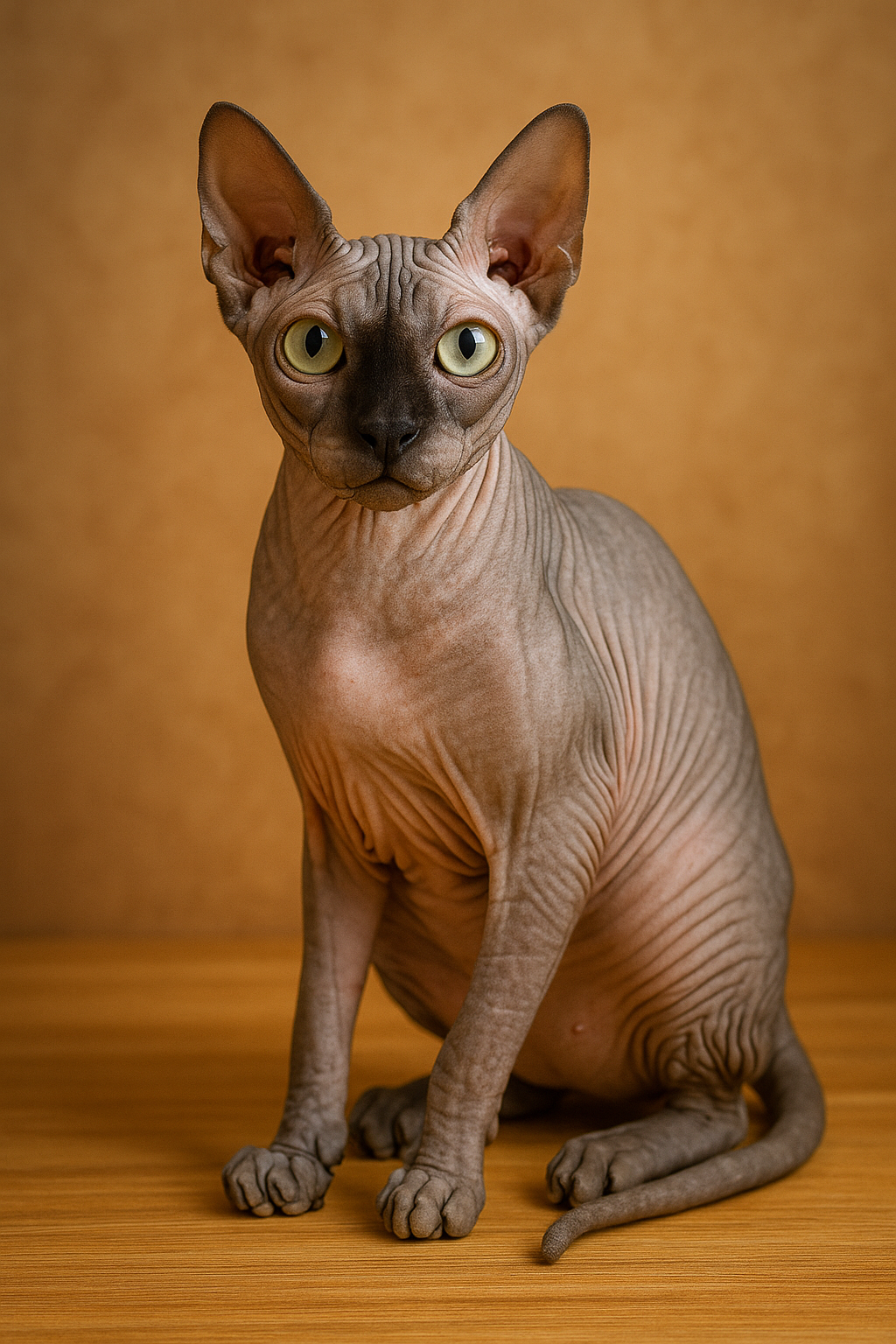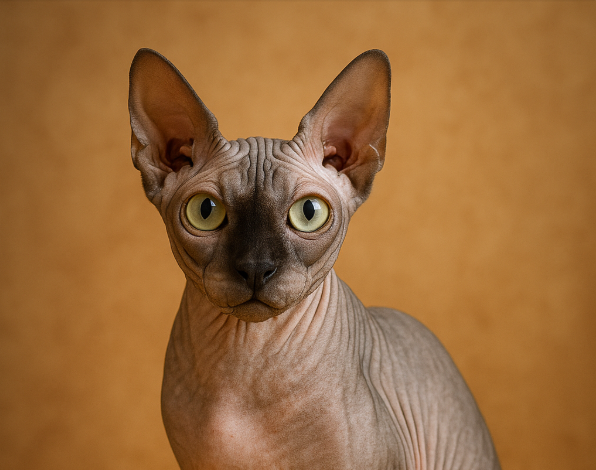Discover the playful and affectionate Sphynx cat breed. Learn about its personality, care needs, grooming, health tips, and why it’s the perfect indoor pet for Australian homes.
The Sphynx cat is one of the most unique and instantly recognizable cat breeds in the world. Known for its hairless appearance, playful personality, and loving nature, this feline is perfect for cat lovers seeking something truly different. Despite their lack of fur, Sphynx cats are full of warmth—both in temperament and literally to the touch. In this guide, we’ll explore the Sphynx cat’s characteristics, care needs, health considerations, and why this rare breed might be the perfect companion for you.
Quick Facts About the Sphynx Cat
-
Breed: Sphynx
-
Average Cost: $2,000 (desexed, vaccinated, and microchipped)
-
Feeding Cost: Approx. $10 per week
-
Lifespan: 10–15 years
-
Maintenance: Medium – requires weekly bathing
-
Temperament: Playful, inquisitive, affectionate
-
Child-Friendly: Yes, very good with kids
-
Activity Level: Energetic, sometimes mischievous
-
Ideal Home: Indoor, suits young professional couples
-
Availability in Australia: Only two breeders, with waiting lists
A Rare and Remarkable Breed
The Sphynx is not truly “hairless.” Instead, its body is covered in a fine layer of peach-fuzz-like down, giving the skin a soft, suede-like feel. Some cats have a “lion tail,” with a small puff of fur at the tip. Wrinkles are especially noticeable in kittens and remain, though less pronounced, as the cat matures.
All coat colours and patterns can appear in Sphynx cats, despite the lack of visible fur. Their muscular build makes them surprisingly sturdy, and their playful, quirky appearance often turns heads.
History of the Sphynx Cat
The Sphynx’s origins trace back to Canada in 1966, when a domestic shorthaired cat produced a hairless kitten due to a natural genetic mutation. These cats were initially called “Canadian Hairless” or “Moonstone Cats” before the official name Sphynx was adopted.
Additional hairless kittens appeared spontaneously in the United States in the 1970s, forming the foundation of the breed we know today. Despite its popularity among enthusiasts, the Sphynx is still considered rare, with only a handful of breeders in Australia.

Personality and Temperament
The Sphynx is famous for its sweet, playful, and intelligent nature. These cats thrive on attention and love being around their humans, often following them from room to room. Unlike many aloof breeds, Sphynx cats enjoy being handled and will happily snuggle for warmth.
-
Sociable: Gets along well with kids and other pets
-
Curious: Always exploring and investigating new things
-
Energetic: Can be hyperactive and mischievous at times
-
Affectionate: Loves to cuddle and be close to its owner
Although not particularly vocal, Sphynx cats are very expressive with their body language and love interacting with people.
Grooming and Care
While Sphynx cats don’t shed, they require weekly baths to remove the natural oils that would normally be absorbed by fur. Without cleaning, these oils can leave marks on furniture or bedding. Baby wipes are handy for quick touch-ups between baths.
Other care tips include:
-
Ear Cleaning: No fur means ears collect more dirt and wax—clean weekly
-
Sun Protection: Pale skin can burn easily; provide shade in summer
-
Warmth: Sphynx cats feel the cold—consider jumpers in winter
-
Food: They eat more than other cats of similar size to maintain body heat
Health and Lifespan
Sphynx cats typically live 10–15 years but need special care due to their sensitivity to temperature extremes.
-
Cold: Can lead to respiratory issues if not kept warm
-
Heat: Prone to sunburn and potential skin problems
-
Immunity: Some lines are known to have weaker immune systems
A healthy Sphynx from a reputable breeder is generally robust but requires regular vet checkups to ensure long-term well-being.
Is the Sphynx Cat Right for You?
The Sphynx cat appeals to people who love its funky appearance, lively personality, and low-shedding nature. It’s especially popular among young professionals and families who can give it attention and warmth.
Perfect for:
-
Indoor homes with stable temperatures
-
Owners who enjoy playful and sociable cats
-
People willing to commit to weekly grooming and bathing
Not ideal for:
-
Those who want a low-maintenance pet
-
People with severe cat allergies (Sphynx cats can still trigger reactions)
Fun Facts About the Sphynx Cat
-
It’s Sphynx, not Sphinx – The breed name uses a “Y.”
-
They’re warmer than they look – Their bodies feel like suede and radiate heat.
-
First to greet you – Sphynx cats are famously sociable and will welcome guests at the door.
Final Thoughts
The Sphynx cat is a rare, affectionate, and highly interactive breed that thrives in loving homes. If you’re ready for a little extra grooming and can provide a warm, safe environment, a Sphynx will reward you with endless affection and personality. With only a few breeders in Australia, expect to join a waiting list—but the joy of sharing your life with this extraordinary feline is well worth the wait.
Curious about the impact of cats on Australia’s wildlife?
Discover the latest stats and insights in our 2025 update.
Read “How Many Birds Do Cats Kill in Australia?” now!

